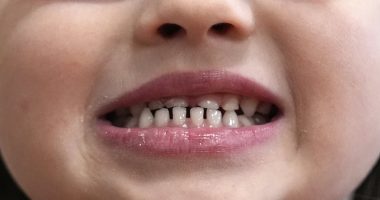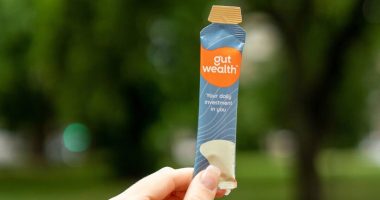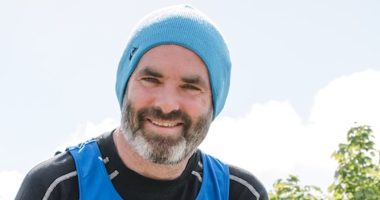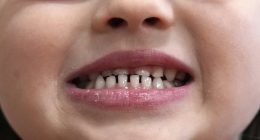Share this @internewscast.com
Have you ever wondered if your thirst is a guaranteed sign that you waited too long to drink water? And even if you do sip enough H2O on the daily, what other factors may contribute to dehydration?
Keep reading for answers to simultaneously quench your curiosity and your thirst, according to an integrative medical doctor and a dietitian.
What causes thirst?
Lauren Manaker, MS, RDN, LD, CLEC, CPT, notes that feeling thirsty most often means that your body needs fluids. However, it can also be a response to eating salty foods or being in higher altitudes, like when you’re in the mountains or on a plane. In other cases “You may also be managing diabetes and have high blood sugar, have hyperthyroidism, or are taking certain medications that cause you to feel thirsty,” she explains.
It’s no surprise that thirst and dehydration often go hand in hand—yet the former is only one symptom of many. Additional signs of dehydration include “dizziness, weakness, fatigue, headache, dry skin, dry mouth, fatigue, and amber-colored or concentrated urine or less urine output,” shares Dana Cohen, MD, a medical advisor for Cure Hydration.
Does drinking more water guarantee that you’ll quench your thirst?
Medical considerations aside, when you feel thirsty, there’s a decent chance that you waited too long to drink water. But more than that, thirst is a way your body’s letting you know that it needs to be replenished at the cellular level. “Hydration means you have enough water inside your cells so that they function properly. It also means that your body is in homeostasis [with] your mineral, vitamin, and water levels balanced,” Dr. Cohen says. When your cells aren’t adequately hydrated, you’re more likely to feel the effects of dehydration, including but not limited to thirst.
Medical considerations aside, when you feel thirsty, there’s a decent chance that you waited too long to drink water. But more than that, thirst is a way your body’s letting you know that it needs to be replenished at the cellular level.
However, Dr. Cohen proceeds to say that plain H2O may not always be sufficient on its own to combat dehydration. “It all depends on how the water you’re drinking is being absorbed and how it gets into your cells,” she explains.
Also, drinking too much water has the potential to trigger undesirable side effects. “This sounds counterintuitive, but if you drink plain water all day, you actually risk losing electrolytes, as you’re flushing them out without replacing them,” Dr. Cohen continues. Of course, this isn’t to say that you should skip or drastically limit your H2O intake, but rather integrate more effective hydration habits into your routine.
How to get ahead of dehydration before thirst kicks in
1. Fill up on water throughout the day
I repeat: do not skip water, especially if you don’t reach the recommended total water intake of 2.7 (women) to 3.7 liters (men) daily. While most beverages and foods count towards this quota—which varies with factors like levels of physical activity, climate, and medical considerations—H2O should comprise a sizable portion.
Aim to drink up intermittently from morning through night, rather than chugging only once you’re parched. At the same time, don’t stress if you’re already thirsty by the time you start to sip. Instead, try to make water accessible and convenient. “Starting your day with water and carrying a water bottle with you can help you drink throughout the day,” says Manaker. Another helpful hack: If you drink coffee every morning, try to make it a habit to down a glass of H2O before you caffeinate. Doing so won’t only help you sip more fluids with ease, but also replenish the water you lose while sleeping.
2. Enjoy hydrating foods
Manaker calls out cucumber and watermelon as two of her go-to hydrating foods, though you can choose your own adventure as far as snacking goes. In addition, consider leaning on hydrating meals with the likes of these gut-friendly soup recipes.
3. Investigate your urine to get ahead of thirst
Instead of waiting to thirst to set in, Dr. Cohen suggests keeping a watchful eye on the frequency and color of your pee. She says it’s a great way to measure your hydration levels (save for when certain items like asparagus, beets, B-vitamins, and medications can cause discoloration). “You should pee every two to three waking hours. If you’re not, you’re probably dehydrated,” she explains. “The color of your urine is also a good indicator. We want our urine to be straw colored: not too dark brown or orange, but also not crystal clear.”
The former can indicate that you’re dehydrated, while the latter can clue you into the fact that you’re overhydrating.
4. Restore hydration with electrolytes
Finally, you may want to consider combating thirst with electrolytes. “To get ahead of dehydration, drink a science-backed, no-sugar-added electrolyte like Cure to replenish essential minerals like potassium, glucose, and sodium that you may be inadvertently flushing out of your system when you drink plain water,” Dr. Cohen suggests. The brand’s electrolyte packets rely on the World Health Organization’s Oral Rehydration Solution (ORS), a formula “that pulls these essential electrolytes directly into your bloodstream through osmosis.” She adds that one packet mixed in a glass of water is the equivalent of drinking two or three glasses of pure H2O, but even better since it’ll hydrate your cells more effectively. “From a clinical standpoint, this is an important distinction,” she concludes.















